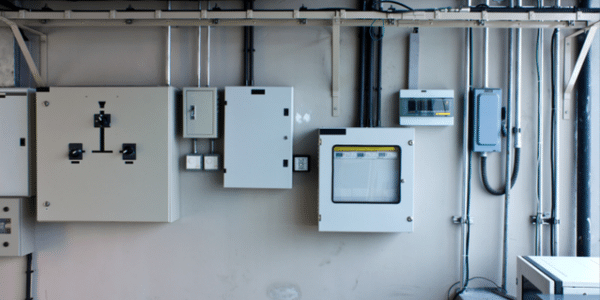Exploring the Insulation Properties of Electrical Fiberglass Boxes for Enhanced Performance
6/8/20243 min read


Understanding the Basics of Electrical Fiberglass Boxes
Fiberglass, a composite material made of glass fibers embedded in a resin matrix, has become a staple in various industries due to its remarkable properties. Specifically, in the realm of electrical enclosures, fiberglass offers a robust solution that addresses several challenges associated with traditional materials. Electrical fiberglass boxes, which are essentially enclosures made from this composite, are designed to house and protect electrical connections and equipment.
The composition of fiberglass, combining the strength of glass fibers with the flexibility of resin, results in a material that is both durable and lightweight. This unique combination makes electrical fiberglass boxes highly resistant to impact and wear, ensuring longevity even in demanding environments. Furthermore, fiberglass is inherently resistant to corrosion, a significant advantage over metal enclosures, which are susceptible to rust and degradation over time.
One of the prominent advantages of using fiberglass for electrical enclosures is its excellent dielectric properties. Dielectric strength refers to a material's ability to act as an insulator and withstand electric fields without breaking down. Given this characteristic, electrical fiberglass boxes provide superior insulation, enhancing the safety and reliability of the electrical components housed within.
There are several types of electrical fiberglass boxes available on the market, each tailored to specific applications. For instance, junction boxes are commonly used to terminate and connect electrical wiring, while control enclosures are designed to protect sensitive control systems and instruments. Other variants include weatherproof enclosures, which are built to withstand harsh outdoor conditions, and hazardous location enclosures, which are engineered to contain electrical components in potentially explosive environments.
In summary, the fundamental aspects of electrical fiberglass boxes include their material composition, durability, and versatile applications. Understanding these basics is crucial for appreciating the enhanced insulation properties that make fiberglass an ideal choice for electrical enclosures. This foundation sets the stage for a deeper exploration of how fiberglass boxes contribute to improved performance in various electrical systems.
Insulation Properties and Their Impact on Electrical Performance
The insulation properties of electrical fiberglass boxes play a critical role in enhancing the performance and reliability of electrical systems. One of the primary properties is thermal insulation, which helps in maintaining stable temperatures within the box. This is particularly crucial in environments where temperature fluctuations can lead to overheating or freezing of electrical components, potentially causing failures or reduced efficiency. The inherent thermal insulating capability of fiberglass ensures that the internal environment remains within safe operational limits, thereby protecting the components and prolonging their lifespan.
Another significant property is electrical insulation. Fiberglass is known for its excellent dielectric strength, which prevents electrical leakage and short circuits. This high level of electrical insulation is essential in safeguarding sensitive electronic devices and wiring from unintended electrical currents. By providing a robust barrier against electrical conductivity, fiberglass boxes help in maintaining the integrity of electrical systems, ensuring their optimal and safe operation over extended periods.
In addition to thermal and electrical insulation, fiberglass boxes exhibit remarkable resistance to environmental factors such as moisture and chemicals. In many industrial and outdoor applications, electrical systems are exposed to harsh conditions that can include high humidity, corrosive chemicals, and physical impacts. The impermeable nature of fiberglass prevents moisture ingress and chemical interactions that could compromise the electrical components. This resistance to environmental degradation ensures that the systems remain functional and reliable, even in challenging settings.
Real-world applications and case studies have demonstrated the superiority of fiberglass boxes in maintaining system integrity. For instance, in the telecommunications industry, fiberglass enclosures have been pivotal in protecting sensitive equipment from environmental elements, ensuring uninterrupted service. Similarly, in industrial automation, these boxes have safeguarded control systems from harsh factory conditions, thereby enhancing operational efficiency and reducing maintenance costs.
Overall, the insulation properties of electrical fiberglass boxes make them a preferred choice for protecting and enhancing the performance of electrical components. Their ability to provide thermal and electrical insulation, coupled with resistance to environmental factors, ensures that electrical systems operate safely, efficiently, and reliably across various applications.
